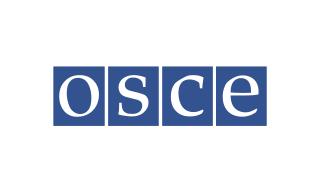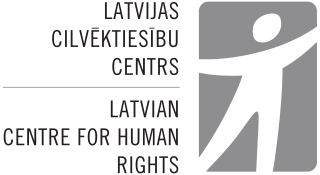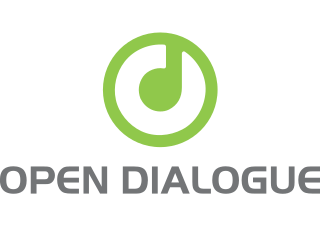
The Organization for Security and Co-operation in Europe (OSCE) is a regional security-oriented intergovernmental organization comprising member states in Europe, North America, and Asia. Its mandate includes issues such as arms control, the promotion of human rights, freedom of the press, and free and fair elections. It employs around 3,460 people, mostly in its field operations but also in its secretariat in Vienna, Austria, and its institutions. It has observer status at the United Nations.

Human Rights Watch (HRW) is an international non-governmental organization headquartered in New York City that conducts research and advocacy on human rights. The group pressures governments, policymakers, companies, and individual human rights abusers to denounce abuse and respect human rights, and often works on behalf of refugees, children, migrants, and political prisoners.

Helsinki Committees for Human Rights exist in many European countries as volunteer, non-profit organizations devoted to the protection of human rights. It was presumably named after the Helsinki Accords. It was formerly organized into the International Helsinki Federation for Human Rights (IHF), based in Vienna.
The British Helsinki Human Rights Group (BHHRG) was an Oxford-based non-governmental organization which claimed to monitor human rights in the 56 participating States of the Organization for Security and Co-operation in Europe (OSCE). Despite its name, the organisation was not affiliated to the Helsinki Committee for Human Rights. BHHRG was critical of what it characterized as Western interference in imposing democracy, and claimed to support the right of political independence from the west of a number of Communist and post-Communist regimes, as well as of a number of African dictators.
The International Helsinki Federation for Human Rights (IHF) was a self-governing group of non-governmental organizations that acted to protect human rights throughout Europe, North America and Central Asia. A specific primary goal was to monitor compliance with the human rights provisions of the Helsinki Final Act and its follow-up documents.

The World Federation of United Nations Associations (WFUNA) was founded in 1946 as a Federation of national associations. Its objectives are to promote the values of the UN Charter, defend multilateralism, work towards a better United Nations Organisation and raise awareness on the main pillars of work of the United Nations—peace and security, sustainable development, and human rights.
The International Federation for Human Rights is a non-governmental federation for human rights organizations. Founded in 1922, FIDH is the third oldest international human rights organization worldwide after Anti-Slavery International and Save the Children. As of 2020, the organization is made up of a federation of 192 organizations from 112 countries, including Israel and Palestine, including Ligue des droits de l'homme in over 100 countries.

The Quaker Council for European Affairs (QCEA) is an international not-for-profit organisation which seeks to promote the values and political concerns of the Religious Society of Friends (Quakers) at the European level. It undertakes research and advocacy in the fields of peacebuilding and human rights policy, notably in relation to the European Union and the Council of Europe. Founded in 1979 by Quakers who worked in the European institutions, it is based in Brussels, Belgium and is registered under Belgian law.
The Fighting Discrimination Program of Human Rights First focuses on the violence known as hate crimes or bias crimes. Because equality is a cornerstone of human rights protection, discrimination in all its forms is a violation of human rights. Discrimination can take the form of violence generated by prejudice and hatred founded upon a person's race, ethnicity, religious belief, sexual orientation, gender, disability, age or other such factors. Through the Fighting Discrimination Program, Human Rights First seeks to combat discrimination by reversing the tide of antisemitic, anti-immigrant, and anti-Muslim violence and reducing other bias crime in North America, Europe, and the Russian Federation.
Aaron Anthony Rhodes is an international human rights activist and writer. He is a senior fellow at Common Sense Society and President of the Forum for Religious Freedom-Europe, an independent nongovernmental organization. Rhodes served as Executive Director of the International Helsinki Federation for Human Rights (IHF) between 1993 and 2007, during which period the IHF was engaged inter alia in human rights challenges in the Balkans, in Chechnya, and in Central Asia, and the organization expanded significantly. He has been active in civil society campaigns vis a vis the Human Dimension of the Organization for Security and Cooperation in Europe (OSCE), the Council of Europe, the European Union and the United Nations. He is based in Hamburg, Germany.

The Latvian Centre for Human Rights is a non-governmental organization which seeks to promote human rights in Latvia, founded in 1993. Its director, as of 2018, is Anhelita Kamenska.
The Association of Ukrainian Human Rights Monitors on Law Enforcement is a Ukrainian human rights organization that oversees nationwide monitoring of Ukrainian law enforcement conduct, utilizing its resources to ensure the active preservation of human rights and fundamental freedoms in the Central European country.
The Norwegian Helsinki Committee is a Norwegian human rights non-governmental organization based in Oslo. It was founded in 1977 following the adoption of the Helsinki Accords. It works to ensure that human rights are respected in practice. It was affiliated with the now defunct International Helsinki Federation for Human Rights.
The Federation of Western Thrace Turks in Europe was established in Germany in 1988 by seven founding associations, as a nonprofit umbrella organization and dissolved in 2013. With the Association of Western Thrace Turks in the UK, the organisation adopted its current name.
The Human Rights and Democracy Network (HRDN) is an informal grouping of 43 NGOs operating at the EU-level in the broader areas of human rights, democracy and peacebuilding.The Human Rights and Democracy Network (HRDN) is an informal grouping of 43 NGOs operating at the EU-level in the broader areas of human rights, democracy and peacebuilding. It was created in 2004 and mainly operates in Brussels.
Antonio Stango is an Italian political scientist, an expert of human rights at international level, a writer and editor. After leading several non-governmental organizations, he is currently the President of the Italian Federation for Human Rights.

The European Partnership for Democracy (EPD) is a membership-based network of not-for-profit organisations that describes its aim as "supporting democracy around the world".
The Netherlands Helsinki Committee (NHC) is a non-governmental organization that promotes human rights and strengthens the rule of law and democracy in all countries of Europe, and the Central Asian countries participating in the Organization for Security and Co-operation in Europe (OSCE).

The Open Dialogue Foundation (ODF), formerly known as the Open Dialog Foundation,, is an international non-governmental organization, founded in 2009 in Poland and currently headquartered in Brussels, Belgium, that conducts research and advocacy on human rights and the rule of law in the post-Soviet area and – since 2018 – within the European Union.







